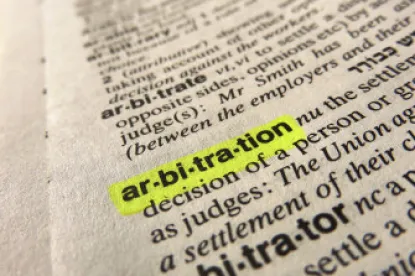In a 2010 decision, Stolt-Nielsen S. A. v. Animalfeeds International Corp., the United States Supreme Court held that parties may not be compelled to submit to class arbitration under the Federal Arbitration Act (FAA) unless there is a contractual basis for concluding that they agreed to do so. The Court held that such an agreement could not be presumed from the fact that the arbitration agreement is “silent” on the issue of class arbitration or the mere fact that the parties agreed to arbitrate.
Nine years later (nearly to the day), on April 24, 2019, the Supreme Court in Lamps Plus, Inc. v. Varela reaffirmed and extended its holding in Stolt-Nielsen and held that even an arbitration agreement that is ambiguous as to whether class arbitration is permitted was insufficient to provide the “necessary ‘contractual basis’ for compelling classwide arbitration.”
The case arises out of a 2016 data breach of Lamps Plus, where the tax information of roughly 1,300 employees, including that of Frank Varela, was compromised. Varela sued his employer in federal court in California after learning of the breach and of the subsequent filing of a fraudulent income tax return in his name.
Lamps Plus moved to compel Varela’s claims to arbitration on an individual basis pursuant to his signed arbitration agreement. The district court granted the motion, but only authorized arbitration on a classwide basis. The Ninth Circuit affirmed the ruling on appeal, holding that the language in Varela’s arbitration agreement—which provided that “arbitration shall be in lieu of any and all lawsuits or other civil legal proceedings relating to my employment”—was “ambiguous” as to whether it authorized class arbitration. Applying state law contract interpretation principles and the canon contra proferentem (i.e., the anti-drafter rule), the Ninth Circuit reasoned that the ambiguity must be construed against the drafter—i.e., Lamps Plus.
On appeal, after disposing of a jurisdictional argument, the Supreme Court accepted the Ninth Circuit’s finding that Varela’s arbitration agreement was ambiguous as to class arbitration. But it nevertheless found that “an ambiguous agreement can[not] provide the necessary ‘contractual basis’ for compelling classwide arbitration” under the FAA. Citing the “‘fundamental’ difference between class arbitration and the individualized form of arbitration envisioned by the FAA”—i.e., the former lacking the efficiency, simplicity and speed of the latter—the Court held that it could not infer Lamps Plus’s consent to participate in class arbitration absent a clear and affirmative agreement to do so.
The Court also rejected the Ninth Circuit’s application of contra proferentem, stating that the canon—which favors interpretations consistent with public policy when the intent of the parties cannot be ascertained—cannot be used to supplant the parties’ affirmative consent to arbitrate on a classwide basis, as is necessary under the FAA.
This decision comes on the heels of another 5-4 Supreme Court decision from last term, Epic Systems Corp. v. Lewis, in which the Court confirmed the enforceability of class action waivers in arbitration agreements.
In her dissenting opinion, Justice Ginsburg, joined by Justices Breyer and Sotomayor, bemoaned the Supreme Court’s trend in sanctioning purported “take-it-or-leave-it” arbitration agreements and “hobbl[ing] the capacity of employees and consumers to band together in a judicial or arbitral forum.” The Justice nevertheless pointed to some companies’ exclusion of sexual harassment claims from their arbitration policies that “ameliorate the harm this Court’s decisions have occasioned.”
In his dissent, Justice Breyer disagreed that the Ninth Circuit and the Court had jurisdiction to hear Lamps Plus’s appeal, contending the underlying order was interlocutory because the district court directed arbitration to proceed under the FAA.
In her dissent, Justice Kagan, joined by Justices Ginsburg, Breyer, and Sotomayor (in part), challenged the majority’s refusal to apply the state contract interpretation principle of contra proferentem to resolve the ambiguity in the contract. Justice Kagan contended that, under the FAA, state law governs interpretation of arbitration agreements so long as that law treats other types of contracts the same way. Since the rule of contra proferentem is “as even-handed as contract rules come,” Justice Kagan reasoned that it should have been applied to interpret the arbitration agreement against Lamps Plus and in Varela’s favor.
Chief Justice Roberts delivered the opinion of the Court, in which Justices Thomas, Alito, Gorsuch, and Kavanaugh joined. Justice Thomas filed a concurring opinion. Justices Ginsburg, Breyer, Sotomayor, and Kagan filed dissenting opinions.
The sum total of the Court’s line of arbitration cases reaffirm an employer’s ability to avoid class and collective actions through properly drafted arbitration agreements. That said, the Court has not yet provided employers like relief from representative actions under the California Private Attorney General Act (PAGA). To take full advantage of Court’s latest opinions concerning class waivers and class arbitrations, it is essential that employers consult with legal counsel to ensure that their arbitration agreements are compliant and updated.



 />i
/>i
